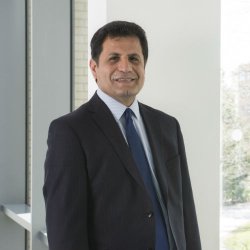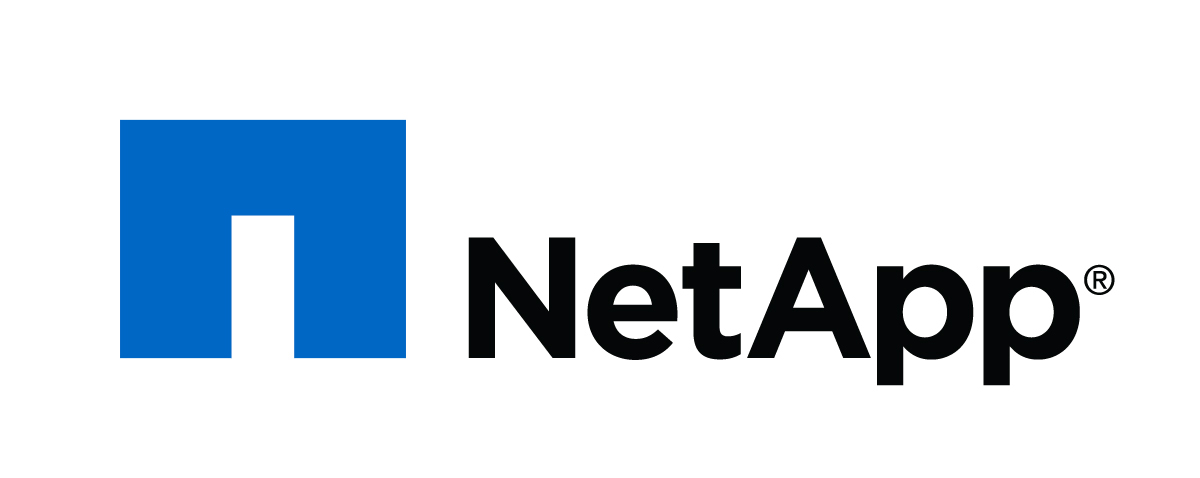ACM SIGCOMM 2018 Workshops and Tutorials: Monday Early Afternoon Session
-
Big-DAMA Workshop
Location: InterContinental
- Session II: Data Analytics and Applications
-
2:25 pm - 2:50 pm Data Analytics Service Composition and Deployment on Edge Devices
Jianxin Zhao, Tudor Tiplea, Richard Mortier, Jon Crowcroft, Liang Wang (Cambridge, UK)
-
IoT S&P Workshop
Location: InterContinental
- Session III: Security
-
2:25 pm - 2:50 pm IP-Based IoT Device Detection
Hang Guo, John Heidemann (USC, USA)
-
2:50 pm - 3:15 pm A Developer-Friendly Library for Smart Home IoT Privacy-Preserving Traffic Obfuscation
Trisha Datta, Noah Apthorpe, Nick Feamster (Princeton, USA)
-
MECOMM Workshop
Location: InterContinental
- Session II: Deployment Requirements
-
2:25 pm - 3:15 pm Panel and Open Discussion
Moderator: Ioannis Psaras (UCL, UK)
Location: InterContinental, Panorama Room V
-
Panelists: George Polyzos (AUEB, Greece), Dirk Kutscher (Huawei, Germany), Paulo Mendes (COPELABS, Portugal), Jussi Kangasharju (University of Helsinki, Finland)
-
NEAT Workshop
Location: InterContinental
-
12:40 pm - 2:00 pm Lunch Break
Location: InterContinental, Pre-Function Area
- Lunch Break
- Keynote Session II
-
2:10 pm - 2:50 pm Keynote II: New Internet Paradigm
Speaker: Rahim Tafazolli (Surrey, UK)
Location: InterContinental, Panorama Room I
- Session III: Dataplane Innovations
-
WTMC Workshop
Location: InterContinental
- Session III: Traffic Measurements and Monitoring
-
2:00 pm - 2:50 pm Keynote III: Repeatable Research, Measurement, and Cybersecurity: Opportunity and Necessity
Speaker: Andrew Moore (Cambridge, UK)
Location: InterContinental, Panorama Room II
-
2:50 pm - 3:15 pm Evaluating the Impact of Traffic Sampling on AATAC's DDoS Detection
Gilles Roudière and Philippe Owezarski (LAAS-CNRS, France)
-
KBNets Workshop
Location: InterContinental
- Opening
-
2:05 pm - 2:40 pm Keynote I: RDMA-Based Networking Technologies and Middleware for Next-Generation Clusters and Data Centers
Speaker: D. K. Panda (OSU, USA)
Location: InterContinental, Ballroom II
-
2:40 pm - 3:15 pm Keynote II: To RDMA and Beyond
Speaker: Eitan Zahavi (Mellanox, Israel)
Location: InterContinental, Ballroom II
-
P4 Tutorial
Location: InterContinental
- Collaborative Lab Exercises
-
RCM Tutorial
Location: InterContinental
- RCM Tutorial Part I: Introduction and Topology Measurement
-
2:00 pm - 2:45 pm Welcome and Introduction
Brian Trammell (ETH, Switzerland)
-
2:45 pm - 3:15 pm Tracebox: Topology Measurement and Impairment Discovery
Korian Edeline (ULiège, Belgium)

 Bio: Rahim Tafazolli, Regius Professor in Electronic Engineering. This royal recognition was awarded to mark the Queen’s Diamond Jubilee. Rahim Tafazolli has been a Professor of Mobile and Satellite Communications at the University of Surrey since April 2000, the Director of Institute of Communication Systems (ICS) since January 2010 and the founder and Director of the 5G Innovation Centre since 2012. The world’s first dedicated centre on 5G research and innovation. He has over 30 years of experience in digital communications research and teaching. He has authored and co-authored more than 500 research publications and is regularly invited to deliver keynote talks and distinguished lectures to international conferences and workshops. In 2011, he was appointed as a Fellow of the Wireless World Research Forum (WWRF) in recognition of his personal contributions to the wireless world as well as heading one of Europe's leading research groups. He was also awarded the 28th KIA Laureate Award- 2015 for his contribution to communications technology.
Bio: Rahim Tafazolli, Regius Professor in Electronic Engineering. This royal recognition was awarded to mark the Queen’s Diamond Jubilee. Rahim Tafazolli has been a Professor of Mobile and Satellite Communications at the University of Surrey since April 2000, the Director of Institute of Communication Systems (ICS) since January 2010 and the founder and Director of the 5G Innovation Centre since 2012. The world’s first dedicated centre on 5G research and innovation. He has over 30 years of experience in digital communications research and teaching. He has authored and co-authored more than 500 research publications and is regularly invited to deliver keynote talks and distinguished lectures to international conferences and workshops. In 2011, he was appointed as a Fellow of the Wireless World Research Forum (WWRF) in recognition of his personal contributions to the wireless world as well as heading one of Europe's leading research groups. He was also awarded the 28th KIA Laureate Award- 2015 for his contribution to communications technology.
 Bio: Andrew W. Moore, Reader in Systems of the Computer Laboratory (Department of
Computer Science and Technology), is a Chartered Engineer with long
running interests in the use of measurements to understand and manage
constrained resources, this specific topic has not prevented Andrew
having work ranging from high-performance computer interface design,
through system architecture, to physical line coding for novel
optical networks, reconfigurable systems for network research,
teaching, and prototyping, and early work applying machine-learning
to network control problems. Throughout this work Andrew has
been a champion of repeatable research principally through making
widely available both the datasets and detailed methodology of
research he and his group at Cambridge have published. Andrew
is the current lead of the NetFPGA project a successful effort to
support an open-source hardware/software combination to the winder
research, education, and prototyping community.
Bio: Andrew W. Moore, Reader in Systems of the Computer Laboratory (Department of
Computer Science and Technology), is a Chartered Engineer with long
running interests in the use of measurements to understand and manage
constrained resources, this specific topic has not prevented Andrew
having work ranging from high-performance computer interface design,
through system architecture, to physical line coding for novel
optical networks, reconfigurable systems for network research,
teaching, and prototyping, and early work applying machine-learning
to network control problems. Throughout this work Andrew has
been a champion of repeatable research principally through making
widely available both the datasets and detailed methodology of
research he and his group at Cambridge have published. Andrew
is the current lead of the NetFPGA project a successful effort to
support an open-source hardware/software combination to the winder
research, education, and prototyping community.
 Bio: DK Panda is a Professor and University Distinguished Scholar of
Computer Science and Engineering at the Ohio State University. He has published over 450 papers in the area of high-end computing and networking. The MVAPICH2 (High Performance MPI and PGAS over InfiniBand, Omni-Path, iWARP and RoCE) libraries, designed and developed by his research group (http://mvapich.cse.ohio-state.edu), are currently being used by more than 2,900 organizations worldwide (in 86 countries). More than 473,000 downloads of this software have taken place from the project's site. This software is empowering several InfiniBand clusters (including the 1st, 9th, 12th, 17th, and 48th ranked ones) in the TOP500 list. The RDMA packages for Apache Spark, Apache Hadoop and Memcached together with OSU HiBD benchmarks from his group (http://hibd.cse.ohio-state.edu) are also publicly available. These libraries are currently being used by more than 285 organizations in 34 countries. More than 26,600 downloads of these libraries have taken place. A high-performance and scalable version of the Caffe framework is available from http://hidl.cse.ohio-state.edu. Prof. Panda is an IEEE Fellow. More details about Prof. Panda are available at http://www.cse.ohio-state.edu/~panda.
Bio: DK Panda is a Professor and University Distinguished Scholar of
Computer Science and Engineering at the Ohio State University. He has published over 450 papers in the area of high-end computing and networking. The MVAPICH2 (High Performance MPI and PGAS over InfiniBand, Omni-Path, iWARP and RoCE) libraries, designed and developed by his research group (http://mvapich.cse.ohio-state.edu), are currently being used by more than 2,900 organizations worldwide (in 86 countries). More than 473,000 downloads of this software have taken place from the project's site. This software is empowering several InfiniBand clusters (including the 1st, 9th, 12th, 17th, and 48th ranked ones) in the TOP500 list. The RDMA packages for Apache Spark, Apache Hadoop and Memcached together with OSU HiBD benchmarks from his group (http://hibd.cse.ohio-state.edu) are also publicly available. These libraries are currently being used by more than 285 organizations in 34 countries. More than 26,600 downloads of these libraries have taken place. A high-performance and scalable version of the Caffe framework is available from http://hidl.cse.ohio-state.edu. Prof. Panda is an IEEE Fellow. More details about Prof. Panda are available at http://www.cse.ohio-state.edu/~panda.
 Bio: Dr. Eitan Zahavi, a Distinguished Architect and co-founder of Mellanox.
Eitan leads the Mellanox network architecture group focusing on cluster level performance.
He also acts as a co-chair of the IBTA technical working group.
Dr. Zahavi teaches Logic Design Automation for VLSI systems in the Technion EE department.
He received his Ph.D. about “Forwarding in Compute Clusters” in 2015 and Bs.C. in 1987
both at the EE department of the Technion, Israel institute of technology.
Bio: Dr. Eitan Zahavi, a Distinguished Architect and co-founder of Mellanox.
Eitan leads the Mellanox network architecture group focusing on cluster level performance.
He also acts as a co-chair of the IBTA technical working group.
Dr. Zahavi teaches Logic Design Automation for VLSI systems in the Technion EE department.
He received his Ph.D. about “Forwarding in Compute Clusters” in 2015 and Bs.C. in 1987
both at the EE department of the Technion, Israel institute of technology.

















